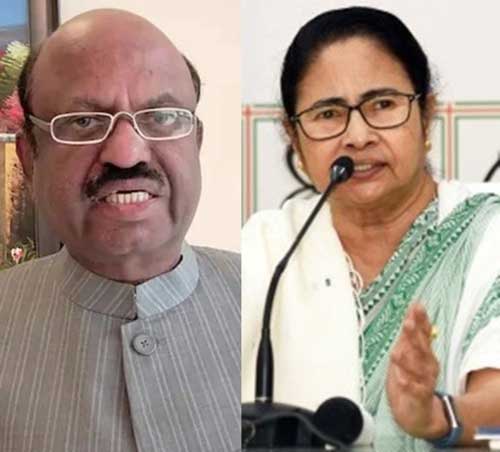A fresh notification from the office of the West Bengal Governor, C.V. Ananda Bose virtually bringing down the level of state government authority on state universities to zero has opened yet another channel of confrontation between the Governor’s House and state secretariat.
In the notification it has been clearly said that the faculty and non- faculty staff members of all state universities are answerable first to the chancellor and then to the vice- chancellor. The Governor himself, by virtue of his chair, is also the chancellor of all state universities.
In the fresh notification from the Governor House, it has also been mentioned that the state government might give instructions to the state universities' authorities, but those instructions are not binding on the universities authorities or employees.
It has also been informed in the notification that any instruction from the state government or state education department to any state university will become valid only if that is cleared by the vice- chancellor.
On September 1, the Governor announced that he as the chancellor of the state universities will play the role of interim vice-chancellors for state universities where the chairs of the functional heads are currently vacant.
The decision attracted scathing criticisms from the state education minister Bratya Basu who said that the state government will move to the Supreme Court against the decision.
This fresh notification bringing down the level of state government authority on state universities to zero has also attracted scathing criticism from the state’s ruling party leadership which has described the move as an attempt on part of the Governor to run a parallel administration in the state.
The opposition BJP has, however, described the move as a step in the right direction to secure the autonomous nature of the universities free from political decisions imposed on them by the state government.


Sushanta demanded Centre to start direct flight service along Agartala-Mumbai route
The state transport minister Sushanta Chowdhury on Monday met the Union Minister of Civil Aviation Ram Mohan Naidu Kinjarapu in Delhi and discussed a series of issues related to the development of air services from Agartala MBB Airport.
CM Dr Manik Saha discuses development railway services and infrastructure in Tripura
Chief Minister Dr Manik Saha on Monday met the General Manager (Construction) of North East Frontier Railway here in his chamber at the secretariat and discussed a series of issues related to the further development of railway infrastructure in the state and ease passenger movement.
State to get Rs 150 Crore for Tourism, Sushanta Meets Union Minister Shekhawat
The Central Government has sanctioned an additional ₹150 crore for the enhancement of Tripura's tourism sector, Tripura Tourism Minister Sushanta Chowdhury announced on Monday.
CM to inaugurate 34 projects of Rs 250 Crore tomorrow
Chief Minister Prof. Dr. Manik Saha will inaugurate and lay the foundation stones of various projects worth Rs 250 crore, comprising 34 projects, in Unakoti district tomorrow.
JP Nadda, BL Santosh arriving in state on March 9: CM Manik Saha
Chief Minister Prof. Dr. Manik Saha today announced that BJP All India National President JP Nadda and National General Secretary (Org) B.L. Santosh will be arriving on March 9 to attend the two-year celebration of the present state government at Swami Vivekananda Maidan.
Two Bihar women held with cannabis at Agartala Railway Station
Acting on a tip-off, the Government Railway Police recovered 21 kg 65 grams of dried cannabis from two women at Agartala railway station. The estimated market value of the seized contraband is said to be over three lakh rupees.
UK PM announces new 1.6-billion-pound deal for Ukraine to buy missiles
British Prime Minister Keir Starmer announced that Britain will allow Ukraine to use 1.6 billion pounds ($2 billion) of British export finance to purchase more than 5,000 air defence missiles.
'PM Modi working for welfare of all communities without discrimination', says Hazrat Nizamuddin Dargah Committee chief
Hazrat Nizamuddin Aulia Dargah Committee Chairman Syed Afsar Ali Nizami on Sunday praised Prime Minister Narendra Modi for attending the Sufi music festival 'Jahan-e-Khusro' and said that he gave the message of brotherhood and works for the welfare of all communities and religion without any discrimination.